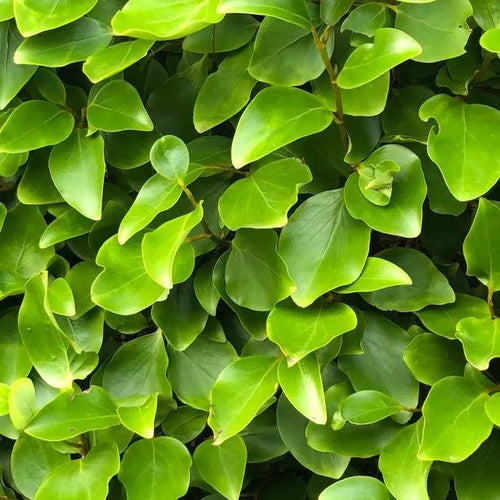 Delivered across the UK
Delivered across the UK Which Best Plant Supplier 2025
Which Best Plant Supplier 2025 1 Year Bareroot Plant Guarantee
1 Year Bareroot Plant Guarantee
About New Zealand Privet Hedge Plants
New Zealand Privet Hedge Plants
New Zealand Broadleaf "Privet", Griselinia littoralis, is a large shrub that makes an excellent evergreen coastal hedging plant.
It's hardy (see below) and will thrive in the worst soil as long as it's well-drained. It's a dense, bushy plant that prefers full sun. It can also be grown as a small, upright tree.
New Zealand Privet is good for tall evergreen hedges up to about 8 metres high.
New Zealand Privet hedge plants are only delivered pot-grown, year round.
View our selection of evergreen hedging plants or see our full range of hedging.
Choosing a size:
When you are ordering New Zealand Privet plants for a hedge, we generally recommend that you use plants that are graded at 40/60cm or 60/80cm. They're cheaper than large plants, easier to handle and they'll establish well in poor conditions.
Use the larger, 80/100cm tall plants if you want a taller hedge quickly, if you want to clip them as topiary or for instant impact as an ornamental shrub.
All our hedge plants are measured by their height in centimetres above the ground (the pots aren't measured).
Spacing a New Zealand Privet hedge:
Plant New Zealand Privet hedging at 2 plants per metre, 50cm apart.
This versatile evergreen bush has thick, leathery, glossy green leaves that clip nicely into a formal hedge and make a good windbreak. Its flowers are too small to notice and ripen into little purple fruit that birds will eat.
Griselinia tolerates a bit of partial shade, but it needs full sun to grow vigorously.
It'll grow on any well drained soil, including shallow chalk and very poor, sandy soils.
Griselinia is suitable for exposed, windy sites around Southern and Western UK, but we recommend using Portugal Laurel instead if you live in colder North East coast or inland Scottish regions.
Griselinia is fully hardy, but the worst winter winds can cause to cosmetic damage to the leaves.
It's resistant to honey fungus.
Features
- Smart evergreen hedging
- Glossy leaves, nicer than privet
- Loves sun & good drainage
- Any soil. Good for the coast.
- Not recommended for Northern exposure
- RHS Award of Garden Merit
- Pot-grown only: Delivery all year.
History & Trivia
Griselinia is a New Zealand native, where it's called Kapuka.
It's commonly known as privet in English because of clever marketing: British gardeners already knew privet well, and the association helped Griselinia quickly became popular in the UK after it was imported in the 1850's, especially for exposed coastal gardens.
Like privet, it's easy to propagate from cuttings at most times of year.













 Secure, One-Tap Checkout
Secure, One-Tap Checkout
 Hand Picked, Delivered to Your Door!
Hand Picked, Delivered to Your Door! 1 Year Bareroot Guarantee
1 Year Bareroot Guarantee





